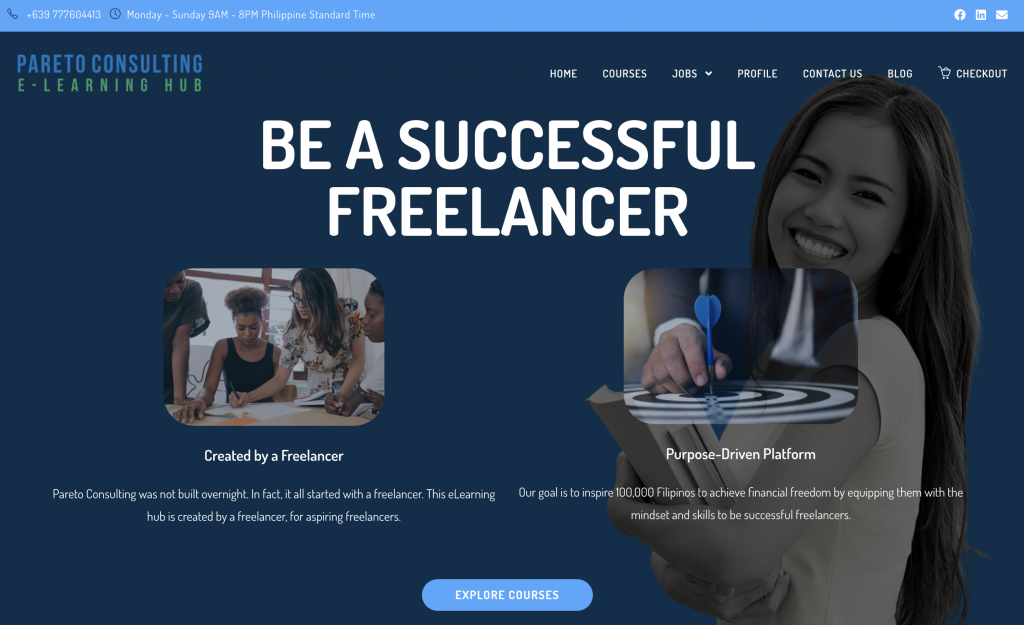
There are currently 88,099 consultant jobs in DC, but where can you find them? Learn more about the duties, skills and compensation that consultants receive. This article will also help you find out how to obtain a consulting job. With these tips, your path to your next consulting job will be easy! Start looking for your next job in consulting. This could be the best job you've ever held!
Consultant duties
A consultant's duties are varied, and they may include solving complex problems and problem-solving, managing client engagements, and researching emerging technology. Consultants may be involved in multiple projects, and they may be required to travel up to 50% of the time. Flexible working hours and insurance coverage are some of the benefits offered by many companies to consultants. Here are some examples. A job in consulting could be for you if you have the skills and experience.
Skills required
The District of Columbia Advisory Neighborhood Commission 1B needs a consultant to assist them with their administrative duties. The consultant's strengths should include problem-solving and team-work. The consultant should have strong communication skills and the ability work well with a diverse team. He or she should be passionate about community involvement and be eager to discover new ways to improve processes. He or she should also be able fulfill the strict deadlines.
Compensation
Washington, DC's consultant jobs offer a higher salary than other similar occupations. This job requires a Bachelor's Degree, as well as three years of experience in a progressive field. It is also necessary to have an excellent working knowledge of law and technical expertise. These sections will cover some aspects of a DC consultancy job. Consider your education background first. Many consultants hold master's degrees.

The Compensation Consultant works with the assigned business unit to assist them in compensation matters. They implement and administer global compensation programs, and participate in various HR-based processes and job evaluations. They may also take part in compensation surveys or perform competitive analysis. They can assist with employee recognition programs and employee rewards design, among other HR-related functions. Many compensation consultants are responsible for creating annual incentive programs or conducting compensation surveys. This role determines whether the compensation program of a company is competitive.
FAQ
How do I start a LLC consulting business?
First, determine what you are looking to do as service provider. Next, you must ensure that you are qualified to provide those services. You might find someone who does the same thing you are interested in and learn from them.
Once you have a clear idea of what you are offering, you can start to identify your target market. If they don't exist, you might have to make them.
You will then need to decide if it is worth starting your own business, or hiring others to do it.
A license from the state could be required to start your own consulting business. However, this can take some time and require legal fees.
What type of contracts are available to consultants?
Most consultants sign standard employment agreements when hired. These agreements specify how long the consultant will be working for the client and what he/she will be paid.
Contracts specify the area of expertise that the consultant will specialize in and the amount they will be paid. For example, the agreement may say that the consultant will provide training sessions, workshops, webinars, seminars, etc.
Sometimes, the consultant agrees to do certain tasks within a given time frame.
In addition to standard employment agreements, many consultants also sign independent contractor agreements. These agreements allow the consultant work on his/her own but still receive compensation for his/her efforts.
Is it possible for a consulting business to be run from home?
Absolutely! Actually, this is what many consultants already do.
The majority of freelancers work remotely with tools like Skype. So they don't miss company perks, freelancers often make their own office space.
Freelancers might prefer to work in libraries or cafés, rather than traditional offices.
And others choose to work from home because they enjoy being surrounded by their children.
There are pros and cons to working remotely. It's worth looking into if your job is fulfilling.
What are the different types of jobs available for consultants?
Being a consultant will require you to have a solid understanding of business strategy as well as operations. It is important to understand the workings of businesses and how they fit into society.
Consultant work requires excellent communication skills and the ability to think critically.
Because they might be required to complete different tasks at different times, consultants must be flexible. They should be flexible enough to change direction quickly if needed.
They should be prepared to travel extensively in support of their clients. This type of work can take you all around the globe.
They also need to be able to handle pressure and stress well. Consultants may sometimes be required to meet tight deadlines.
Consultants may work long hours. You might not always be paid overtime.
Statistics
- My 10 years of experience and 6-step program have helped over 20 clients boost their sales by an average of 33% in 6 months. (consultingsuccess.com)
- So, if you help your clients increase their sales by 33%, then use a word like “revolution” instead of “increase.” (consultingsuccess.com)
- According to statistics from the ONS, the UK has around 300,000 consultants, of which around 63,000 professionals work as management consultants. (consultancy.uk)
- Over 50% of consultants get their first consulting client through a referral from their network. (consultingsuccess.com)
- 67% of consultants start their consulting businesses after quitting their jobs, while 33% start while they're still at their jobs. (consultingsuccess.com)
External Links
How To
What's a typical day like for a Consultant?
Depending on what type of work you do, your typical day may vary. But, in general, you will spend your time researching, planning and meeting new clients.
Clients will often meet with you to discuss their problems. These meetings may be over the phone via email, on-line, or face-to–face.
Also, proposals are documents that outline your ideas or plans for clients. Before presenting these proposals to clients, you will usually need to discuss them with a colleague or mentor.
After all the planning and preparation, you will have to produce some content. You could write articles, design websites, edit photos or conduct interviews.
Depending on your project's scope, it may be necessary to do research to get relevant statistics. For example, you may need to find out how many customers you have and whether they are buying more than one product or service.
After gathering enough information, you can present your findings to clients. You can either present your findings in writing or orally.
You must also follow up with clients following the initial consultation. You can call clients to ask how they are doing or send emails asking for confirmation that your proposal was received.
This is a long process that can take some time. However, it is crucial to stay focused and to maintain good relationships.